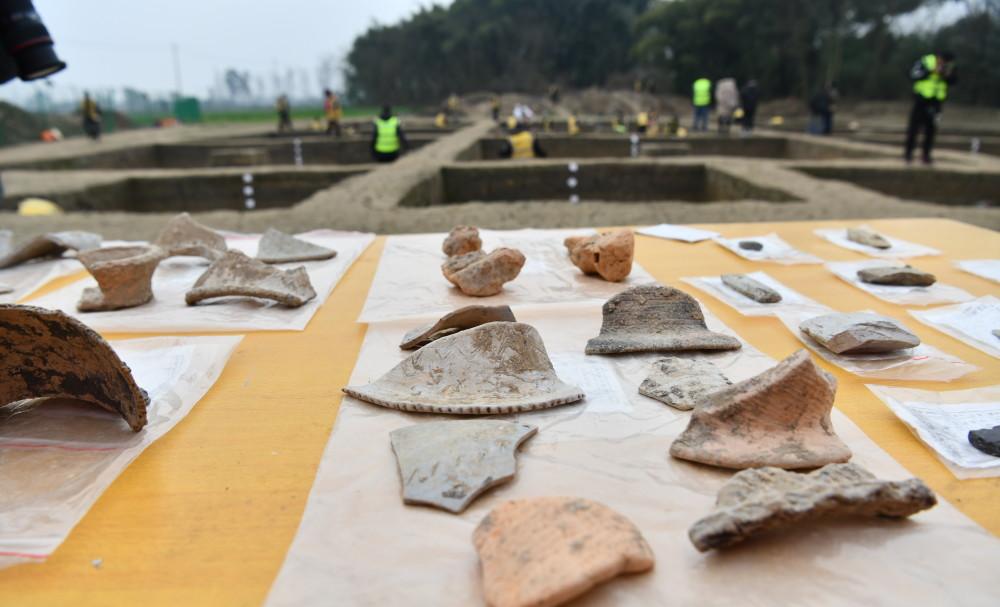At the end of January, at the excavation site of the Baodun site in Chengdu, Sichuan Province, the staff placed a large number of newly excavated pottery and stone fragments on the table, and the patterns engraved on them were still very conspicuous, waiting for further study. Discovered in 1995, the Baodun site is the earliest and largest prehistoric city site in the upper reaches of the Yangtze River in China, the site of the first large-scale settlement and life of human beings on the Chengdu Plain, and the birthplace of rice cultivation civilization in the Chengdu Plain, with a history of 4500 years.

At the excavation site of the Baodun site, a large number of pottery stone tool fragments were placed on the site.
Archaeological excavation site.
The Baodun culture is an important Neolithic archaeological culture in the Chengdu Plain. The Baodun culture may have developed from the Yingpanshan culture. In its own development, the Baodun culture has innovated in pottery making techniques and may have also accepted influences from other archaeological cultures.
As far back as about 4500 years ago, the late Neolithic culture , Baodun Culture " , which was the source of Shu culture , had already been produced in the Chengdu Plain. Baodun culture is the archaeological culture of the incubation period of civilization, and the Baodun site is not only a typical example of the earliest ancient city site in the Chengdu Plain era in this period, but also a historical witness that Sichuan is about to cross the threshold of civilization.
Discovered in 1995, the Baodun site is the earliest and largest prehistoric city site in the upper reaches of the Yangtze River in China, the site of the first large-scale settlement and life of human beings on the Chengdu Plain, and the birthplace of rice cultivation civilization in the Chengdu Plain, with a history of 4500 years.